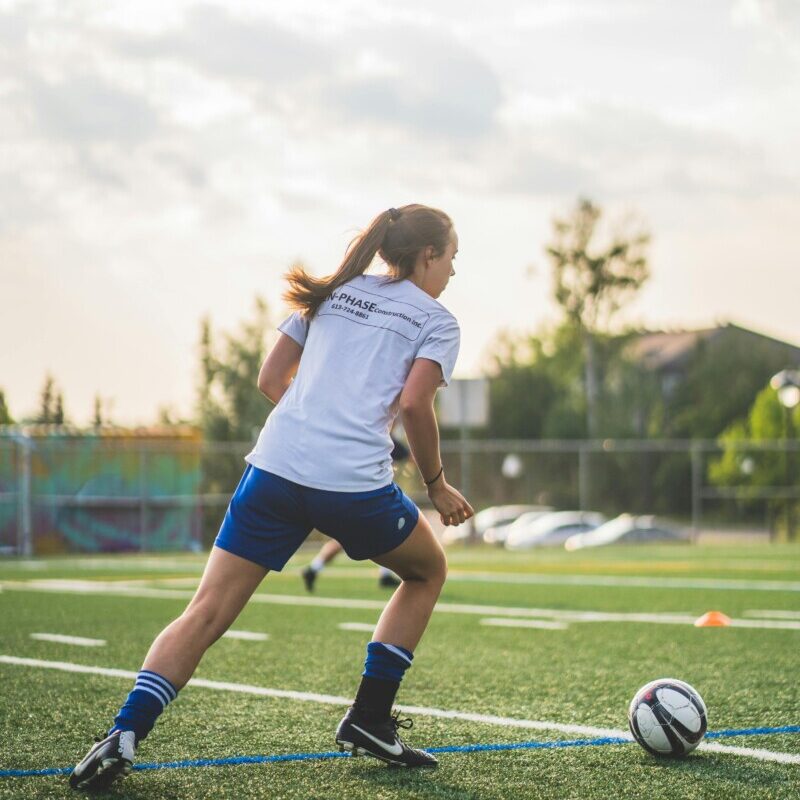
2024 has been one of the strongest years on record for the growth of women’s professional sports. The launch of the Professional Women’s Hockey League (PWHL) broke one attendance record after another while providing a sustainable league for women to play professional hockey. Caitlin Clark drew millions of eyes to her dominant run at the NCAA Women’s Basketball National Championship, which featured a championship game where an average of 18.9 million people tuned in to watch on ESPN. That’s an increase of over 4 million average viewers compared to the men’s final the next night. The popularity of women’s sports at the professional level is clearly on the rise, but what about at the grassroots level?
Canadian Women and Sport released its latest edition of The Rally Report in 2022, which is in-depth look at how Canadian girls and women, and women sport leaders, experienced sport in 2022. One of the key takeaways from the report was that by adolescence, half of girls were not participating in sports, while the 14 percent of girls who returned to play after the pandemic were not participating to the extent that they used to. The report indicated that while participation numbers held steady through the pandemic, they were still low overall.
“As much as we love sport, the truth is the current system isn’t inclusive enough. It’s time to disrupt the old norms and create the conditions for more girls, women and gender-diverse people to participate fully and safely in sport.” – Canadian Women and Sport, Rally Report 2022
A November 2023 article from the Sport Information Resource Centre (SIRC) explored women’s sport in Canada over the last 50 years. The article discusses the Government of Canada’s commitment to achieving gender equality in Canadian sport at every level by 2035. The author, M. Ann Hall, gave the opinion that this is unlikely to happen without the collaboration of governments and organizations devoted to bettering women’s sport.
The Ottawa Sport Council’s recently released Belonging Playbook contains a resource from Canadian Women and Sport that discusses the benefits of gender equity in sport, including how it can impact sport participation. By committing to gender equity, a sport organization can garner a positive environment for the participation of women and girls, while also decreasing the drop-out rate of women and girls in sport through gender-friendly guidance and coaching.
Do you want to commit to gender equity in your sport organization? Learn more about how to support equitable and inclusive practices, including gender and sexuality inclusion in sport, from the free resources in The Belonging Playbook.